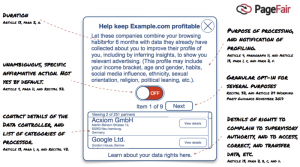Jeremy Walker, (June 09, 2015)
Every day, the world of search becomes more complex. Google is a constant, while Bing increases share and Yahoo descends. YouTube, Facebook, Yelp, Amazon, TripAdvisor, Google Maps and other platforms each have their own unique results interface, and for specific industries, these might be more important than what takes place on Google. Yet, while Google’s dominance is constant, its result page is anything but.
We’ll look at how to navigate what is changing on Google (rich answers) and how nontraditional platforms are starting to play a role in search.
Rich Answers
So-called rich answers are Google’s response to its premise that search should return things besides listings. Rich answers generally fit into two categories: Instant Answers and Knowledge Graph Content. Stone Temple Consulting recently reported that from 850,000 searches, 19% included some form of rich answer.
— Instant answers are answers to questions posed in search (e.g., “who is Keyser Soze?”), or details provided in real time (e.g., “Golden State Warriors”). In many cases (e.g., “what is golf?”), the answer is provided without citing the source of the answer.
— The Knowledge Graph is the big content block in the right rail. Sometimes this is present in conjunction with a related answer (e.g., “state slogan Connecticut”). Other times this is just the sidebar itself (e.g., “Fernando Alonso”).
In general, this is great for the user, since details are provided immediately after the search without the need for a click. It’s good for consumer brands as well; brand/product awareness is generated without any additional clicks.
However, for brands that require more interaction, these results can be a challenge. How do you lead the user to a greater level of engagement? And for properties where site traffic is monetized or necessary for conversion, this is just plain bad. In the case of the golf query, your reward for having the best content is no site traffic and no brand awareness. The bottom line is to audit your top keywords for rich-answer inclusion, develop a thoughtful strategy (greater investment, or conscious decision not to invest, etc.) and work with that plan in mind.
Nontraditional platforms
Nontraditional platforms are search interfaces that are substantially different than what you get in desktop or mobile search. Think Siri, your car, your refrigerator and wearables.
— Wearables are about to see a tremendous increase in consumer adoption. Fitbits and Nike+ are great but will pale beside what is projected to happen with the Apple Watch: with 2015 sales estimated at anywhere between 20 and 40 million units, the likely impact will be many more local searches and an acceleration in Apple Pay adoption.
— Much has been said about voice search optimization to date, but it’s very hard to keep up with the proliferation of interfaces and apps. In addition to Siri, Google Now was launched in July 2012, Cortana in April 2014, and now Hound in June 2015. The primary principle is simple: provide content that answers the top questions in your industry. However, achieving success can be complex, since this strategy is dependent on the various platforms, their popularity and their individual algorithms.
— What about the future? Not too long ago, we thought we would be ordering our groceries straight from our appliances by now. That is happening (sort of), but the process is still pretty clunky. Samsung refrigerators will allow you to create a shopping list but require that you use Evernote to pass it via Wi-Fi. New cars come complete with Bluetooth, enabling voice connection to smartphones. Audi, Chrysler, GM and Ford models feature mobile hotspots. For better or worse, optimizing these devices for search is not yet a practical concern.
The search landscape is changing at a rapid pace. The complications associated with universal results seem minor compared to instant answers and the Knowledge Graph. The Apple Watch will probably accelerate the importance of local search, especially for online/offline retailers. Voice search is an ever expanding concern, especially if the Hound app is as good as advertised.
None of these changes mean abandoning what you’re doing today, but do demand consideration. Kick the dust off your most recent SEO strategy and add chapters on rich answers and nontraditional platforms. What you decide today will certainly improve what gets accomplished in 2016.
(207)
Report Post




